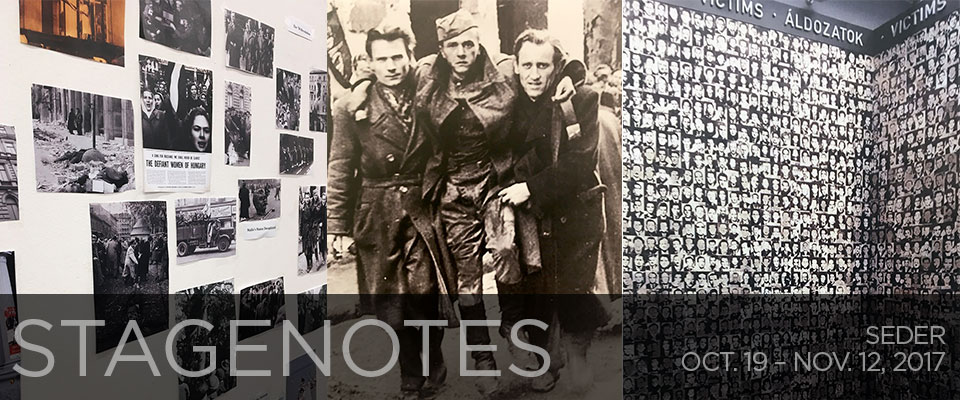

Past Issues
- A Midsummer Night’s Dream
- Our Great Tchaikovsky
- Heartbreak House
- The Absolute Brightness of Leonard Pelkey
- Cloud 9
- The Comedy of Errors
- A Christmas Carol
- The Piano Lesson
- Queens for a Year
- Anastasia
- Having Our Say
- Romeo & Juliet
- The Body of an American
- A Christmas Carol (2015)
- Rear Window
- An Opening in Time
- Kiss Me, Kate
- The Pianist of Willesden Lane
- Reverberation
- Private Lives
- A Christmas Carol (2014)
- Hamlet
- Ether Dome
Community Sponsor Spotlight: The Jewish Community Foundation
By Nicholas Denninger, Development Apprentice
 The Jewish Community Foundation (JCF), Hartford Stage’s community sponsor for Sarah Gancher’s Seder, serves both the faith-based and secular interests of the Jewish community of Greater Hartford. Grants made by the Foundation, and its donors, go to nonprofit organizations around the globe.
The Jewish Community Foundation (JCF), Hartford Stage’s community sponsor for Sarah Gancher’s Seder, serves both the faith-based and secular interests of the Jewish community of Greater Hartford. Grants made by the Foundation, and its donors, go to nonprofit organizations around the globe.
The JCF was established in 1972. Twenty years later, the Foundation became an independent nonprofit organization whose mission is twofold: to create a healthy, vibrant, and sustainable Jewish community in Greater Hartford, and to fulfill the philanthropic dreams and wishes of its donors. At the heart of the Jewish community’s commitment to both secular and faith-based philanthropy is recognition that the Hebrew word for charity, tzedakah, literally translates to “justice.” To be philanthropic is to pursue justice. Over the last five years, the Foundation has grown dramatically; now, with assets of over $120 million, it is one of the largest community foundations in Connecticut.
Passover is one of the most widely observed Jewish holidays. At its heart is the retelling of the story of the Exodus, the Israelites’ escape from slavery in Egypt. Just like it is for the characters in Sarah Gancher’s play, Seders observed by Jews worldwide serve as a forum for not only for traditional rites, but also as a living reflection on modern circumstances.
The characters in Seder portray the real life experiences of Eastern European Jews who, until the fall of communism, were forbidden from observing their faith and who lived under a regime that sought to control not only their actions, but their thoughts. In another sense, the Seder has always served as a venue for discussing modern forms of bondage – slavery to material possessions; slavery to alcohol or drugs; slavery to guilt or self-doubt; slavery to the devastation of gun violence, homelessness, or poverty; or perhaps, most compellingly in the context of our world today, slavery to hatred, racism, xenophobia, and anti-Semitism.
In this sense, the experiences of the Seder are universal. The JCF’s intent in sponsoring the play is not only to recognize the power of the arts to put a mirror up to the world in which we live, but more directly, to create understanding about the Jewish faith in a way that will help repair the wounds in our badly divided world.
